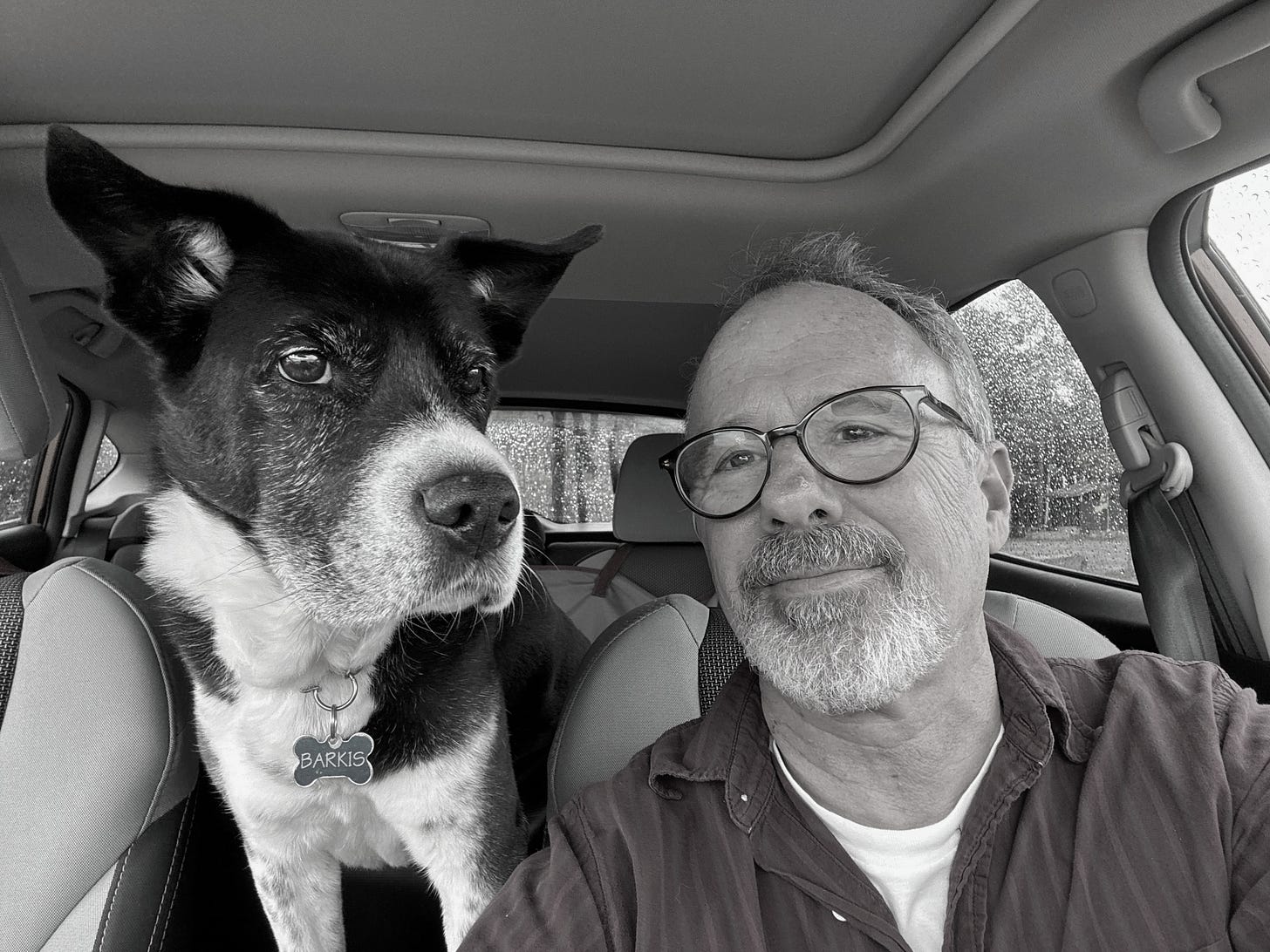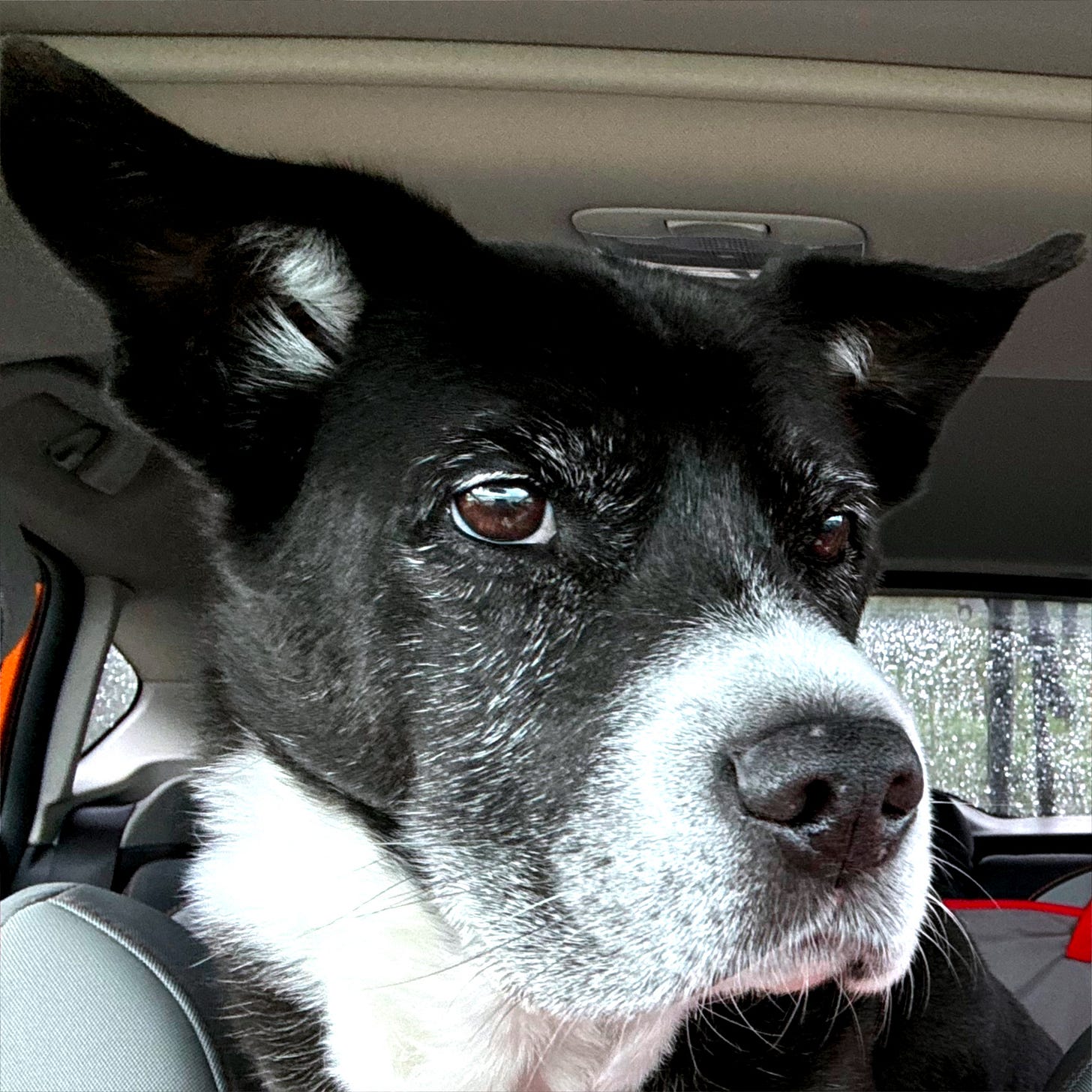EXCLUSIVE: GILDED OPPORTUNITY
CMP owner to invest bigly in U.S. grid & gives gold-plated jet to Trump. Also, Laurel Libby (and her mom) win in court. And introducing “Mutual Aid," conversations with Mainers making a difference.
The controversy concerning the posh used-747 the nation of Qatar is gifting to Donald Trump distracts from the real news from the Persian Gulf country last week: The Spanish energy mega-corp controlled by Sheikh Tamim bin Hamad Al Thani — the Qatar dictator and Trump’s personal pal — intends to invest $20 billion dollars in the U.S. electrical grid infrastructure over the next five years.
Gotta wonder how many of Central Maine Power’s over 650k customers are aware that the Sheikh, via his sovereign wealth fund, owns about 10 percent of Iberdrola stock, making him the largest shareholder of the Spanish energy mega-corp, the fifth largest utility company in the world, whose holdings include CMP and seven other American utility companies, plus a gazillion entities in the U.K., Europe, Australia, Japan, South America and Central America. (Black Rock, the world’s largest “asset manager,” is the second largest shareholder.)
To put it another way, 10 percent of the profit CMP makes from Maine customers goes right into the pocket of the Sheikh’s thawb. Capitalists, of course, will applaud and defend this fella’s goal of having influence over the American power market. After all, the guy has a large family (three wives and a buncha kids), plus owns several palaces, which means his housekeeping expenses must be huge.
Here’s the press release from corporate explaining the investment that was announced when the CEO of the utility giant — a Spaniard businessman named Ignacio Galán — attended a kegger with Trump and the Sheikh last week.
No mention in the press release, though, of the Sheikh — supposedly the ninth wealthiest monarch on the planet — gifting the gold-plated flying machine to the orange oligarch. The 20 billion invested in American energy infrastructure, though, furthers the Sheikh’s scheme to diversify from being super-rich by selling his country’s dwindling oil supply, to being super-rich from selling electricity to Americans and the rest of the power-hungry developed world.
Maine voters had a chance to cut this multinational electric cord, of course, but blew it by rejecting the 2023 referendum to dismantle CMP and create “Pine Tree Power,” a nonprofit utility that would’ve become consumer-owned. Instead, most Mainers will pay higher electric bills forevermore to a Spanish entity whose largest shareholder is a Middle Eastern Dictator with untoward relations with the sitting U.S. President.
Supreme Court grants local politician/bigot the right to harass teenagers on the socials.
I’m sure our undercover lawmaker Reese Calloway will be commenting on this disaster of a court ruling in this week’s Augusta Confidential, but in case you haven’t heard, Auburn Rep. Laurel Libby and her mother, Wendy Munsell (and a couple other chuds) won their case in front of the Supreme Court. Long story short, Libby won’t have to apologize to her colleagues for bringing shame upon the legislative chamber after doxxing a teenage athlete as part of her on-going hate-filled grift. Which means Libby looks like a heroic victim (?!?!?) to her MAGA base and has the chance to get back on the national teevee news to spew her venom.
Not a dress rehearsal
Obviously, any win by Libby and other local Christo-Fash bootlicking culture warriors is disheartening. However, to merely despair and doom-scroll is to admit defeat and feeds the sadness spiral.
In such frustrating times, the best response is to take action. Which doesn’t mean just shitposting or re-memeing on the socials. We’re talking about IRL stuff to make a difference in the lives of our friends and neighbors experiencing the brunt of the unholy marriage betwixt the kleptocracy and End Times fanatics. And that sort of anti-oligarchical action can take many forms.
Thus, today we launch The Crash Report’s newest feature Mutual Aid, a series of interviews with folks taking action, curated and conducted by the author and journalist Mira Ptacin. Hopefully, by highlighting the good work of those in our community, other folks looking to get involved (or inspired) will be motivated to get off the couch.
Mira, btw, is one of my best pals. We bonded via our mutual concern over the now-defunct attempt by Hammer-the-Chud and the Blood Tribe nazi-cult to build a compound on ten acres they owned in the Penobscot County town of Springfield. Mira wrote a fantastic and thorough piece called, ahem, “The Crash of the Hammer” for the Atavist magazine about how Hammer was run out of Maine.
(Despite our friendship, I’ve never before shared the piece because I’m a “character” in the story and Mira was embarrassingly kind in her portrayal of me.)
Besides being an excellent writer and reporter, Mira is a person-of-action. A longtime volunteer prison teacher (you can read about that here) and community organizer, she’s inspired by her parents who raised her with the understanding that helping others was part of her job as a human. Currently, she’s teaching her own offspring to do the same, while writing for various publications, including Harper’s BAZARR, The Guardian, The New York Times and now, thankfully, The Crash Report.
Mutual Aid, Ministry and the Power of Showing Up
A Conversation with Rev. Norman Allen
An interview by Mira Ptacin
Let’s start with your mutual aid work. What does that look like for you? And why is it urgent and important?
At First Parish Church in Portland, where I serve, we’ve been running the emergency warming shelter for the last two years. That’s when temperatures drop below a certain threshold and we open our doors as a low-barrier shelter. This is very different from a family shelter. Our guests are often under the influence, struggling with addiction, or having mental health crises. They’re usually not welcome—or have chosen not to go—to traditional shelters because they are addicted to the point where they can't stop long enough to be outside of the shelter…or there's been some kind of altercation in the past, you know, and they’re no longer welcome there. So that's the most immediate work. And to be perfectly honest, we shouldn't be doing it. We're not the right place for it. We don't have enough bathrooms. We don't have enough space, but no one else said yes for the last two years. The first year, Pastor Jeff Logan of Grace Street Ministry reached out to me. This year, I reached out to the city because nothing was happening. We’ve partnered with organizations who actually run the shelter operations inside our building—Greater Portland Peer Services last year, and Common Space this year. They’re both amazing.
And beyond the immediate?
There’s also the activism work to try to solve the problem that causes a need for us to open our doors as a warming shelter. Right now, First Parish organizes a weekly rally, either in Monument Square or in front of City Hall, depending on the day, but every Saturday we do a “standout” from 11 to 12.
What first called you to this work?
You mean ministry? (laughs) Mutual aid? All of it? Well, I can’t really run from it. I had a whole first career as a playwright. I still do theater—one of my plays was off-Broadway and it’s opening in Boston this June.
As a kid, I held church services in my garage and did puppet shows. Only the puppet shows got an audience, but the spiritual impulse was there early on. I had a remarkable grandmother—half-German Lutheran, half-Italian Catholic—who told me in fifth grade, “It doesn’t matter what you believe in, honey, as long as you believe in something.”
That stuck with me.
Have you always done this work?
RN: No, I taught English at an inner-city school in D.C. for six years. It’s been a winding path. I didn’t come to ministry straight out of college.
When did you go to seminary?
RN: I started part-time in 2014 and was ordained in 2018. You need a Master of Divinity to be ordained in the Unitarian Universalist church. It’s quite a process—internships, evaluations, all of it.
How do you stay grounded? You’re a leader—you don’t get many “stay in bed” days.
Mondays. I call them my “Sabbath Mondays.” No email, no calls. My administrator protects that time. And I do things that refill me—I just spent 48 hours in Boston seeing friends, wandering through bookstores, going on long walks. That helps a lot.
And who supports you?
RN: My partner Gary. We’ve been together a long time. He’s quiet, steady, kind. No unnecessary drama. I also have my dog, Barkis—he’s a mellow mutt and a great companion. We curl up in a big chair together or go walking in the West End. That’s healing.
What gives you hope right now?
RN: Big-picture, people like Cory Booker and Janet Mills—they’re not afraid to stand up and lead. Locally, it’s kids. I got to spend time doing crafts upstairs with them during church last month. That joyful chaos—it’s pure medicine.
What have you learned the hard way about how we care for each other?
RN: That we need to recognize people experiencing homelessness and addiction as our literal neighbors. They live next to us. Too many people in Portland don’t see them as part of their community. But they are. Portland is a city in crisis—and if it doesn’t feel like one to some people, it’s only because they’ve been spared its worst effects.
Do you think things are going to get worse?
RN: Yes. With the funding cuts, I think we’ll see even more people without shelter or services next winter. And a lot of that funding was pulled out of vindictiveness—punishment for standing up to federal power.
What’s something you wish more people understood?
RN: That these issues aren’t abstract. I’ve seen tourists take photos of unhoused people in Portland like it’s some kind of poverty safari. That level of dehumanization—seeing people as “those people”—is dangerous.
What advice would you give to someone who wants to get involved?
RN: Do two things. First, take direct political action—call your representatives, show up at rallies. But also do something immediate, something that connects you to someone in need. Volunteer. Serve food. Listen. The policy work is important, but so is that face-to-face connection. Both are necessary. And both feed the soul in different ways.
Mira Ptacin is a literary journalist, memoirist, ghostwriter, editor and professor of creative writing. She is the author of the award-winning memoir Poor Your Soul and of The In-Betweens: The Spiritualists, Mediums, and Legends of Camp Etna. She lives on Peaks Island and is currently at work on her next book.












The "Universal Translator" featured in Star Trek is (will be?) an amazing piece of technology. But I'm not sure that even the greatest Engineers in Starfleet could program a device that would translate MAGA-ese into a logical statement.
But despite lacking both a Universal Translator and a worm in my brain, I'm going to take a shot at understanding the "logic" behind the following:
"Maine voters had a chance to cut this multinational electric cord, of course, but blew it by rejecting the 2023 referendum to dismantle CMP and create “Pine Tree Power,” a nonprofit utility that would’ve become consumer-owned."
Chud justification: "I think it's great paying high prices for electricity, and having that money go into the account of a foreign Dictator, instead of having a home-grown, citizen-controlled non-profit power company, because by defeating the "Pine Tree Power" referendum, we got to own the libs."
Did I come close to getting that right?